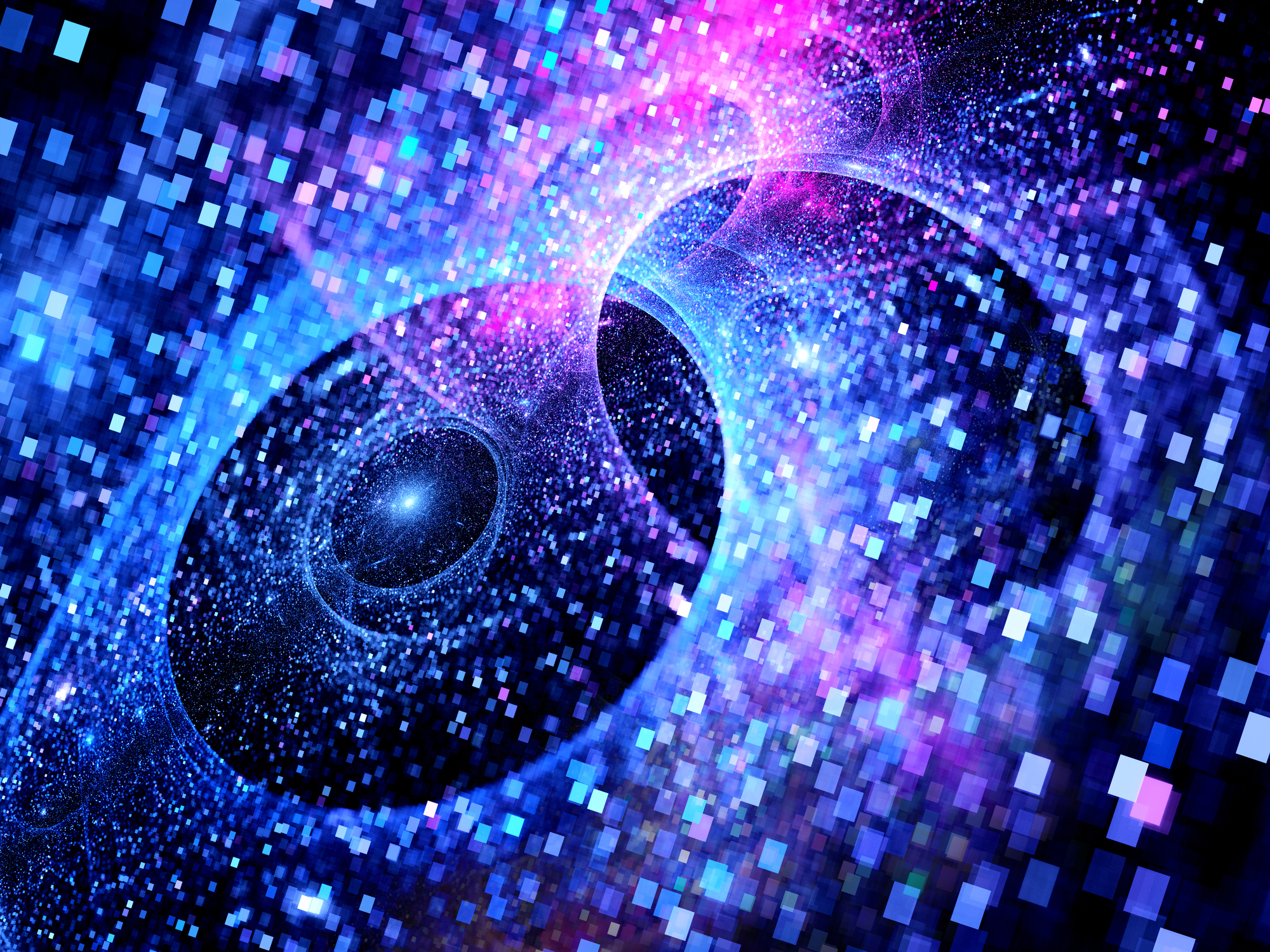When the universe began to boil
How did the supermassive black holes come into being, which today are gigantic sentinels in the center of many galaxies? Initially, one proceeded from the obvious: The giants grew by accreting other matter or consuming black holes, that is, by merging with them. Step by step, from small to medium to giant. But this concept has a couple of problems. First, we have not yet been able to detect the necessary intermediate stages. They should still exist, but so far we have only found small black holes – or the really big ones. Problem number 2 is that there seems to have been too little time for this growth process. Recent observations suggest that supermassive black holes formed in the early universe, much earlier than physicists previously thought. This finding leaves little time to explain the growth of supermassive black holes.
The rate at which matter can accumulate in black holes through accretion is limited. And how would black holes be able to merge with each other when galaxies were just beginning to form in the early universe? Ultralight dark matter particles could be the missing piece of the puzzle, if theoretical physicists Hooman Davoudiasl, Peter Denton and Julia Gehrlein of the U.S. Department of Energy’s (DOE) Brookhaven National Laboratory are right. The researchers envision a cosmological phase transition that enabled the formation of supermassive black holes in a dark sector of the universe. A phase transition also occurs when water is brought to a boil. When the water reaches just the right temperature, it breaks down into bubbles and steam. Physicists are now transferring this process to a primordial state of matter, but reversing it so that it has a cooling effect, and scaling it up to the dimensions of the universe.
“Before there were galaxies, the universe was hot and dense, that is well enough known. How the universe cooled to what we observe today is an interesting question, because we have no experimental data describing how that happened,” says Peter Denton. “We can predict what happened to known particles because they interact with each other frequently. But what if there are particles out there not yet known that behave differently?” To address this question, the Brookhaven team developed a model for a dark sector of the universe where particles that have not yet been discovered are abundant and rarely interact with each other. These particles could include ultralight dark matter, which is predicted to be 28 orders of magnitude lighter than a proton. “The frequency of interactions between known particles suggests that matter as we know it would not have collapsed very efficiently into black holes,” Denton said. “But if there was a dark sector with ultralight dark matter, the early universe may have had just the right conditions for a very efficient form of collapse. We theorized that particles in the dark sector might undergo a phase transition that allows matter to collapse very efficiently into black holes. When the temperature in the universe is just right, the pressure can suddenly drop to a very low level, allowing gravity to take over and matter to collapse.”
To the onlooker, such a phase transition would be a very dramatic event, and that’s something the researchers can use to test their idea. “These collapses are a big deal. They emit gravitational waves,” Denton says. “These waves have a characteristic shape, so we make a prediction for that signal and its expected frequency range.” Current gravitational wave experiments, however, are unfortunately not sensitive enough to confirm the theory. But next-generation experiments may already be able to detect signals from these waves. This would tell us not only something about the history of the universe, but also about the still ominous dark matter that must have been involved in the phase transition.
